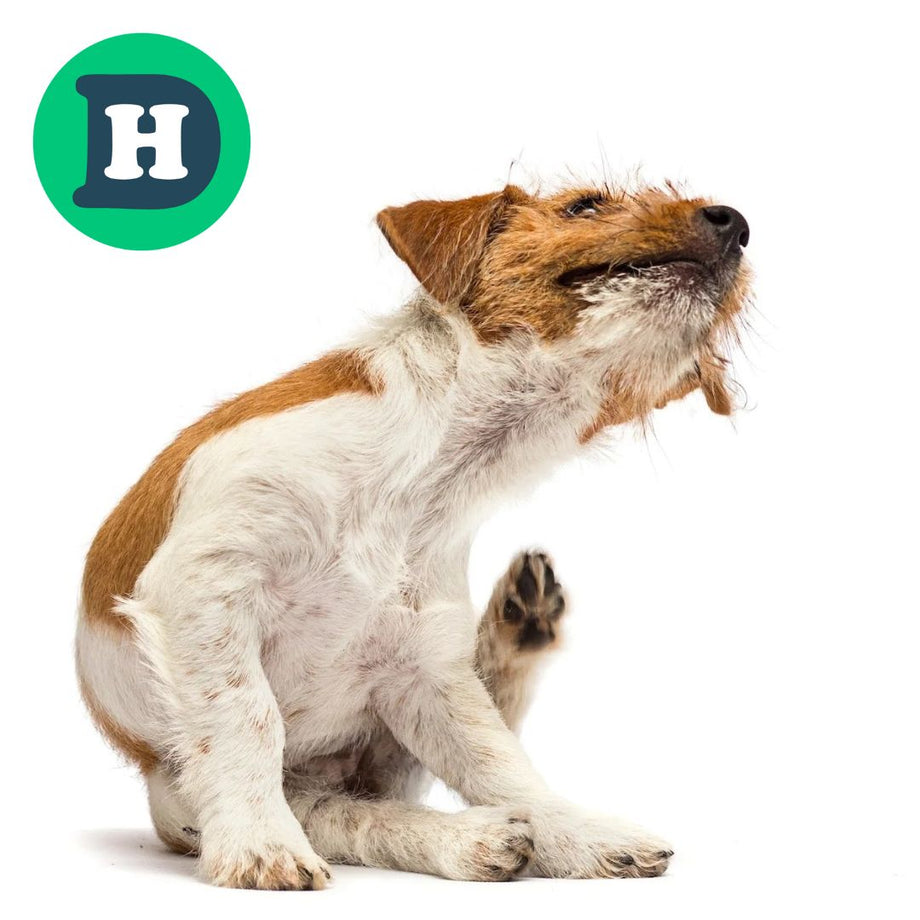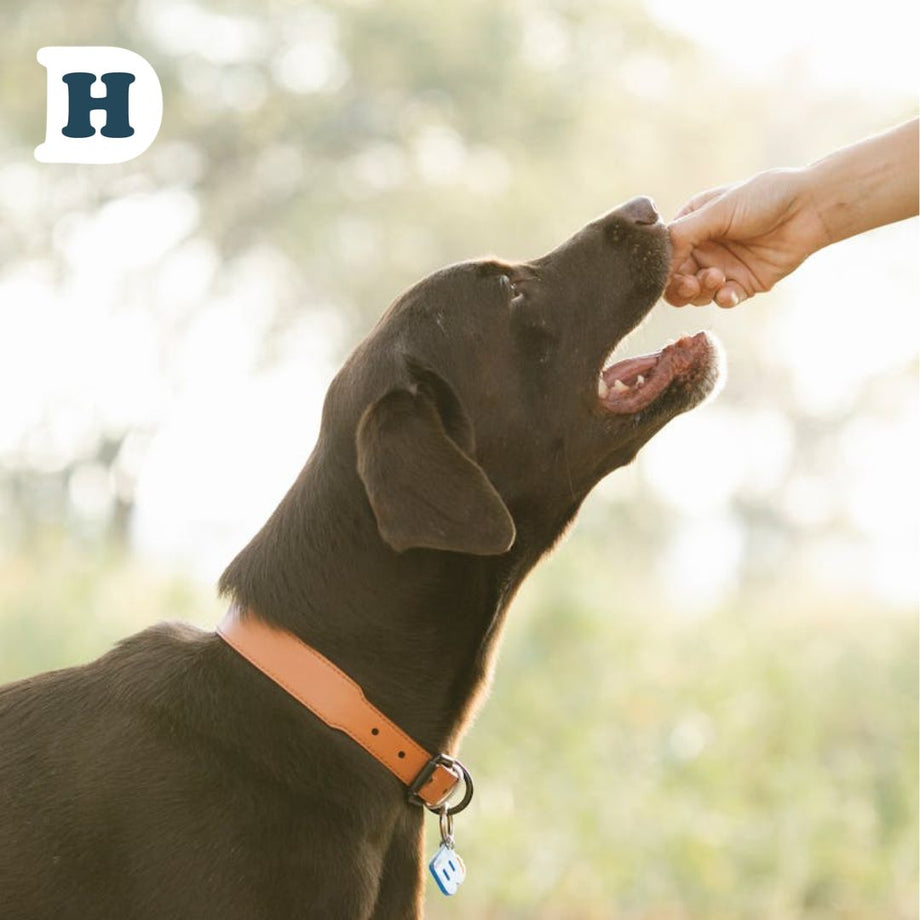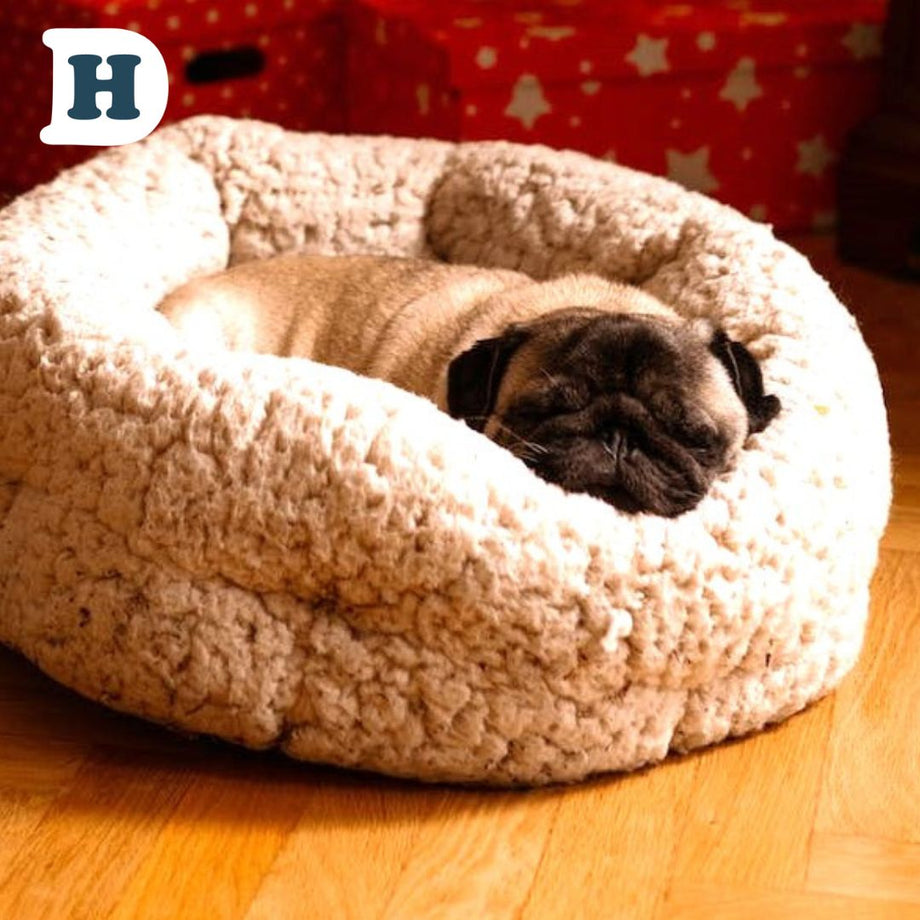
If you're a dog owner, you may have caught your furry friend indulging in a less-than-appetising habit: eating poop. While it may seem gross and unhygienic, there are actually several reasons why dogs engage in this behaviour.
Poo eating in pups and dogs can be more common than you think! At Delivery Hound, our Director, Jeremy's pup Pictured here (in the act), would eat sheep poo at the farm at any given opportunity!
Fortunately it was a curiosity stage that many pups go through and he grew out of it. Phew!
In this article, we'll explore the reasons behind coprophagia (the scientific term for poo-eating) and provide tips on how to address it!
What is Coprophagia?
Coprophagia is the scientific term for the behavior of eating feces. While it may seem disgusting to humans, it is actually a common behavior among many animals, including dogs. There are several reasons why dogs engage in this behavior, including nutritional deficiencies, boredom, and anxiety. It is important to address this behavior as it can lead to health issues and can also be a sign of underlying medical conditions.
Reasons Why Dogs Eat Poop.
The primary reason why dogs eat poop is due to a nutritional deficiency in their diet; they may not be consuming enough of the right nutrients in their food, so they turn to other sources (such as feces) in order to get them. Also, if there are multiple dogs in the household, one dog may consume another’s feces in order to establish dominance or mark its territory.
Another reason is boredom or lack of stimulation, leading them to engage in this behavior out of curiosity. Additionally, anxiety or stress can also lead to coprophagia in dogs. It is important to address this behavior as it can lead to health issues and may also be a sign of underlying medical conditions.
Health Risks Associated with Coprophagia.
Coprophagia, or the behaviour of eating faeces, can lead to several health risks for dogs. Consuming feces can lead to the transmission of parasites and bacteria, which can cause gastrointestinal issues and infections. Additionally, if the faeces consumed is from another animal, it may contain toxins or harmful substances that can be dangerous for dogs. It is important to maintain regular worming and parasite control to prevent an infestation being transmitted to your hound and then onto you!
How to Prevent Coprophagia.
There are several steps pet owners can take to prevent coprophagia in their  dogs. First, it is important to keep the dog's living area clean and free of faeces. This can be achieved by regularly cleaning up after the dog and providing a designated area for elimination.
dogs. First, it is important to keep the dog's living area clean and free of faeces. This can be achieved by regularly cleaning up after the dog and providing a designated area for elimination.
Additionally, providing the dog with a balanced and nutritious diet can help reduce the likelihood of coprophagia. At Delivery Hound, we know the links that a nutritous diet has with a dogs behaviour and well-being. We recommend feeding your pup our nutritious Man's Best Puppy Formula to support their well-being, behaviour and to meet all of their nutritional needs. The added fish oil (assists with brain development) works well to help forge good behaviour as your pup grows into adulthood.
If the behaviour persists, it is important to consult with a veterinarian to rule out any underlying medical conditions and discuss potential behavioral interventions.
When to Seek Professional Help.
If your dog's coprophagia persists despite your efforts to prevent it, it may be time to seek professional help. A veterinarian can rule out any underlying medical conditions that may be causing the behaviour. Additionally, a qualified dog behaviourist can work with you and your dog to address any underlying behavioural issues that may be contributing to the behaviour. It's important to address coprophagia as soon as possible to prevent potential health risks and to ensure a happy and healthy relationship with your furry friend.
©deliveryhound.com.au 2023






